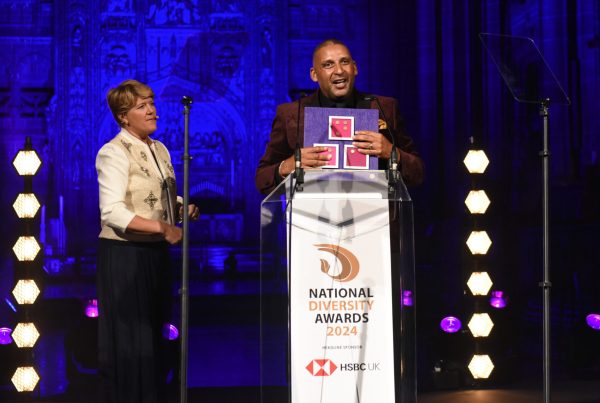Career Accelerator, a leading UK education business is supporting Neurodiversity Celebration Week from March 13th to March 19th, a global initiative that promotes neurodiversity acceptance, equality, and inclusion in schools and workplaces by highlighting the success of its ´┐ŻNeurodiversity and disability´┐Ż programme launched in 2022.
The programme connects neurodiverse students with businesses such as Pearson, Centrica, and Cisco to provide mentoring and work experience opportunities, with the aim of building more diverse talent pipelines and support young people aged 14-25 with special educational needs and disabilities (SEND) to prepare for careers in the professional sectors through mentorship with employees at these companies.
It is estimated around 1 in 7 people (more than 15% of people in the UK) are neurodivergent[i], and there are 14.6 million disabled people in the UK, 9% are children and 21% are working age adults[ii]. Both groups continue to be unrepresented in career opportunities in general. The employment rate of disabled people is 53%, compared to 82% of non-disabled people[iii]. For people with severe or specific learning difficulties, the rate is even lower at 27%, and for autistic individuals it is lower yet at 22%[iv].
Mayur Gupta, CEO at Career Accelerator (pictured above) said: ´┐ŻOur work with schools and businesses revealed a gap around neurodiversity and disability career support for young people.´┐Ż Not all young neurodiverse and disabled people are getting equal opportunities to thrive in their education and career journeys and companies are missing out on diverse talent.
“Diverse and inclusive companies enjoy competitive advantage, better employee performance and engagement. To develop innovative products and services, businesses need a workforce with different viewpoints and perspective to reflect society at large.´┐Ż This is why in Neurodiversity Celebration Week we´┐Żre urging companies to look at how they can become more diverse and consider getting involved with our mentorship programme.´┐Ż
Pearson, Centrica, Cisco and Pearson have all taken part in the Neurodiversity and Disability programme, with employees mentoring neurodiverse and disabled young people. 90% of employees found acting as a mentor a meaningful volunteering opportunity.
Pearson has set up a dedicated Neurodiversity workstream with its Disability employee resource group, and took part in Career Accelerator´┐Żs programme, and over a three-month period its employees mentored students who are neuro divergent to help them learn about business and prepare them for their future careers. The mentees were assigned to Pearson mentors who were also neuro divergent or highly experienced in neurodiversity.
Kevin Lyons, Senior HR Manager at Pearson said, ´┐ŻAs an employer committed to neurodiversity inclusion, this programme is important for our inclusion strategy. We aim to create an environment that is welcoming to neurodivergent individuals and have established a dedicated workstream for this purpose.´┐ŻWe are also working on our recruitment process to ensure that neuro divergent candidates feel encouraged to apply and have trailed changes such as providing questions in advance to support those who are neurodivergent.
“All Pearson employees who are neurodivergent can also obtain a formal diagnosis of neurodiversity through our partnership with Health Partners and Lexxic, which can support adjustments at work, and we are also rolling out education and awareness on neurodiversity to managers and employees.
“Additionally, we participated in the Career Accelerator programme with our employees as mentors to expand their knowledge and understanding of neurodiversity while also benefiting from mentoring young neurodivergent people. By embracing neurodiversity, we aim to attract and retain a diverse neuro inclusive workforce and foster a culture where everyone can thrive.´┐Ż
Havana Abid from Pearson said: ´┐ŻIt was a great way to connect with students and was really meaningful for me as I could share my own expertise, knowledge and share experiences with students who found the conversations helpful. It was a good way to give back.´┐Ż
Students that took part said it helped them learn about career opportunities or options for the future, increase their confidence and self-awareness and build interpersonal skills. Students also gained practical help writing CVs, cover letters and learning interview techniques.
For more information on Career Accelerator visit: www.careeraccelerator.io
[i] https://www.bdadyslexia.org.uk/news/new-guidance-neurodiversity-in-the-workplace#:~:text=it%20is%20estimated%20that%20around,%2C%20Autism%2C%20Dyslexia%20and%20Dyspraxia.
[ii] https://www.scope.org.uk/media/disability-facts-figures/
[iii] https://www.ons.gov.uk/peoplepopulationandcommunity/healthandsocialcare/disability/articles/outcomesfordisabledpeopleintheuk/2021
[iv] https://www.autism.org.uk/what-we-do/news/new-data-on-the-autism-employment-gap




